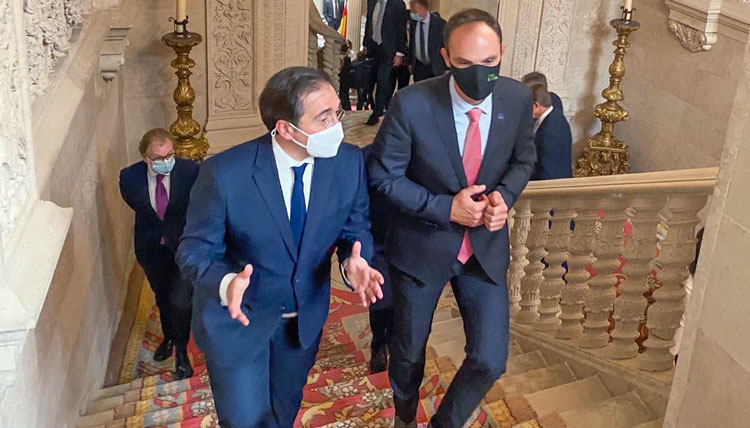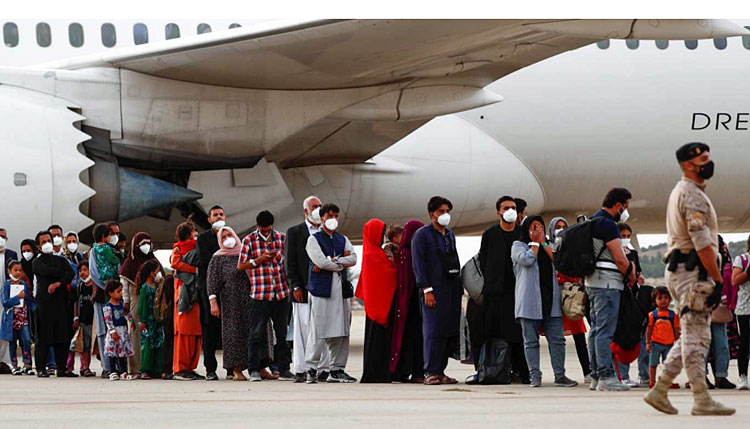The Diplomat
Slovenia’s Foreign Minister Anze Logar does not expect that during the Slovenian presidency of the European Union there will be any progress on the debate about the creation of a European Army, an issue that was revived by the High Representative for Foreign Policy, Josep Borrell, at the outbreak of the Afghanistan crisis.
Logar was in Madrid yesterday, where he met with members of the Foreign Affairs Committee of the Congress of Deputies and held an interview with his Spanish colleague, José Manuel Albares, at the end of which they both appeared at a joint press conference.
Asked about Borrell’s initiative, Logar recalled that the proposal for the EU to have its own army is not something new and that it was already discussed twenty years ago, promoted by the then French President, Jacques Chirac. In any case, he said that he does not expect that during the Slovenian Presidency of the Union, which is taking place during the second half of this year, there will be any progress on the matter.
However, he said that there will be a debate on the strategic consequences of the Afghan crisis and what concerns the security and defense dimension of the EU, among other moments in the meetings that have been convened for these days of defense ministers on the one hand and foreign affairs ministers on the other.
Regarding the informal meeting that the foreign affairs ministers will hold next Thursday in Slovenia, the Spanish minister, who had already spoken about Afghanistan in his appearance hours before in the Congress of Deputies, pointed out, in relation to future actions to follow the evacuation process that “the more unified the response, the more effective it will be, and once we have it, we can talk with the countries of the region and with the countries that remain on the ground”.
And in view of the new challenges that are opening up, among other things because of what has happened in Afghanistan, Albares pointed out that a “strong and cohesive” European Union is needed.
Beyond the issues of Afghanistan and the consequences of the crisis in that country, Albares said he asked the Slovenian Presidency to promote the adoption of the negotiating mandate for the agreement between the European Union and the United Kingdom on Gibraltar.
Spain welcomed the proposal for a negotiating mandate that the European Commission presented to London on July 20, while from the United Kingdom and Gibraltar voices were raised very critical, giving Spain the possibility of exercising control of travelers in the port and airport of the Rock.
Albares yesterday asked Slovenia to work for the mandate to be adopted “as soon as possible”, because it is – he said – “a priority issue for Spain”.
The two ministers also discussed the EU enlargement process to the Western Balkans, which is one of Slovenia’s priorities, and specifically North Macedonia and Albania, which are already candidates to start accession negotiations. Albares said that Spain supports the October 6 summit, where he said he hopes there will be progress in the process in those two countries.
Finally, Albares and Logar agreed on the need for the EU-27 to reach an agreement on the new Immigration and Asylum Pact, especially in the current context, when it is feared that many Afghan refugees could arrive in Europe in the coming months.







